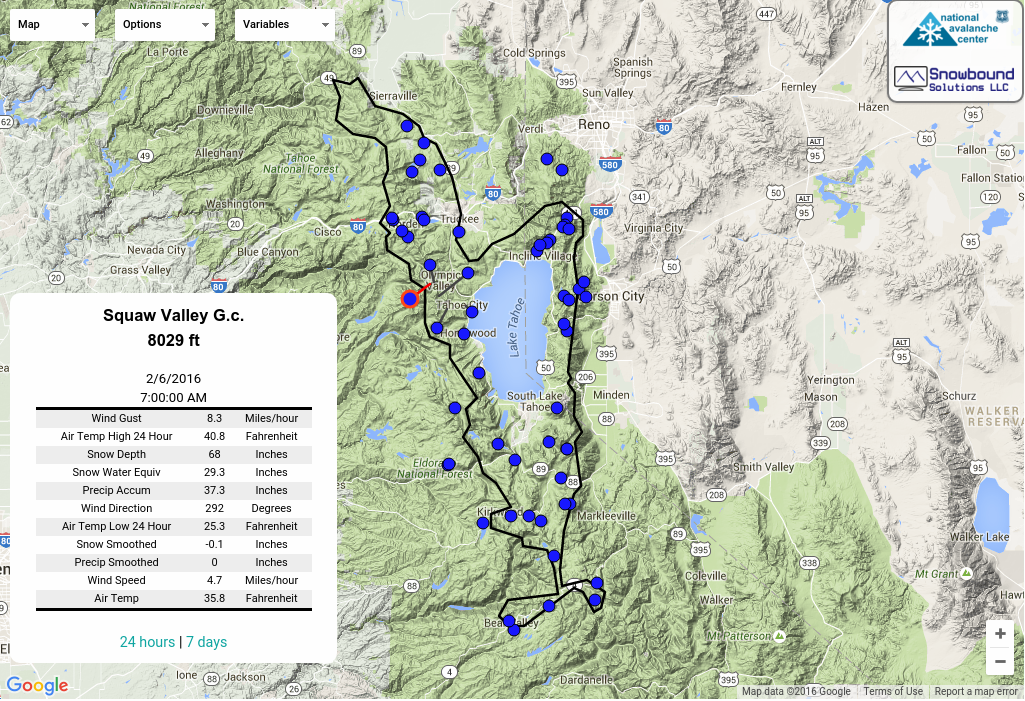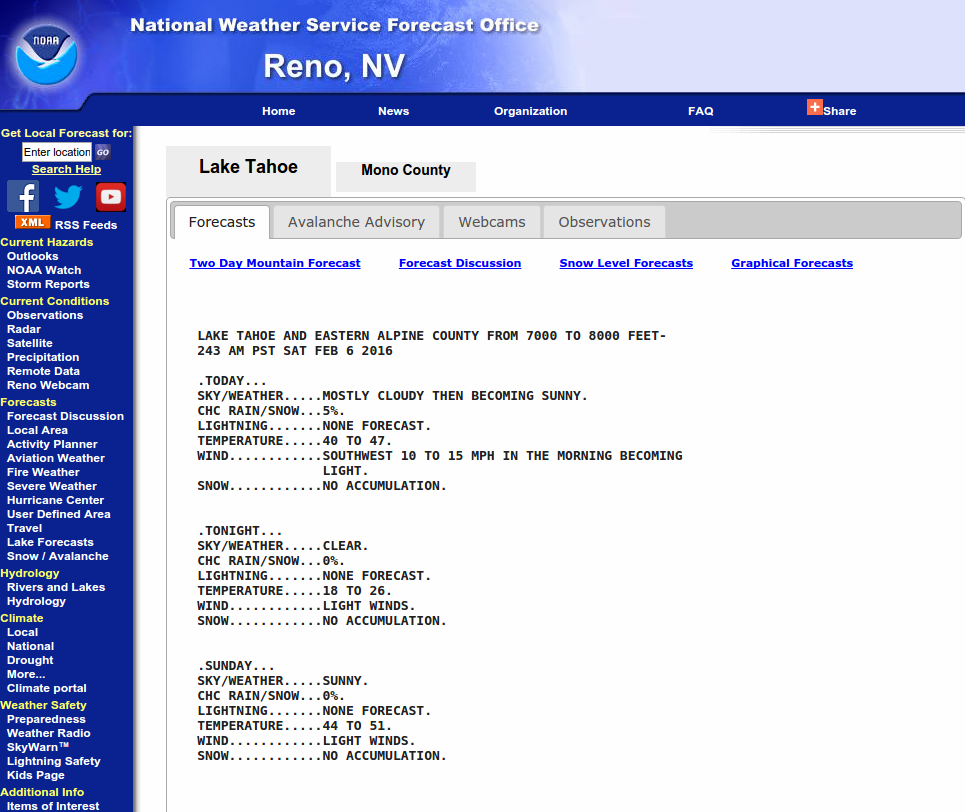
This Avalanche Advisory was published on December 1, 2009:

|
December 1, 2009 at 7:48 am |
|
Pockets of MODERATE avalanche danger linger above 8,700' in near treeline and below treeline areas on slopes 32 degrees and steeper. For all other areas, avalanche danger is LOW. |
|
|
|
Forecast Discussion:
High pressure remains firmly in place over the forecast area today. Light winds and above freezing air temperatures are expected again today at the upper elevations. An air temperature inversion is in place this morning with the coldest air below around 7,000' in mountain locations.
Snowpack observations continue to reveal pockets of terrain that hold an unstable snowpack. Persistent weak instability continues to exist above 8,700' on NW-N-NE aspects that receive some degree of wind protection from NE winds. This is mainly near treeline and below treeline areas where the snowpack consists of recent new or wind affected snow on top of the October 19 facet layer. This snow sits on top of the early Oct ice mass which covers the ground in these areas. Yesterday, observations made near the Mount Rose Hwy Summit on the far east ridge of Tamarack Peak produced continued whumpfing, collapse, and shooting cracks up to 50' long triggered by an individual traveling on skis. This occurred repeatedly at and below treeline on NW-N-NE aspects between 8,700' and 9,100' on 20 to 28 degree slopes. In some areas, snowpack collapse was great enough to create a shadow along the displaced side of the fracture line (photo). On the rest of Tamarack Peak, above treeline and on other aspects, no evidence of snowpack instability was observed and the snowpack structure was noted as missing the Oct 19 facet layer. This is due to significant slope scouring from recent NE winds above treeline and greater sun exposure on other aspects. These observations match well with other recent observations from the Carson Pass, Donner Summit, and Independence Lake areas.
Today, pockets of instability remain in areas where the Oct 19 facet layer is present. Many of these areas are the areas with the best snow surface conditions and are the areas that hold the deepest sections of the overall very shallow snowpack. Feeling with poles or feet will easily detect the presence of the early Oct ice mass. Quick hand pits will identify the presence or absence of the soft and sugary Oct 19 facet layer on top of the ice mass. Where these two buried layers exist, slopes steeper than 32 degrees are best avoided. In other areas where the Oct 19 facet layer does not exist, rocks and down trees that lurk under the thin snow cover are the greatest hazard to backcountry travelers.
The bottom line:
Pockets of MODERATE avalanche danger linger above 8,700' in near treeline and below treeline areas on slopes 32 degrees and steeper. For all other areas, avalanche danger is LOW.
Weather Observations from along the Sierra Crest between 8200 ft and 8800 ft:
| 0600 temperature: | 25 deg. F. |
| Max. temperature in the last 24 hours: | 33 deg. F. |
| Average wind direction during the last 24 hours: | West |
| Average wind speed during the last 24 hours: | 12 mph |
| Maximum wind gust in the last 24 hours: | 28 mph |
| New snowfall in the last 24 hours: | O inches |
| Total snow depth: | 8 to 25 inches |
Two-Day Mountain Weather Forecast - Produced in partnership with the Reno NWS
For 7000-8000 ft: |
|||
| Tuesday: | Tuesday Night: | Wednesday: | |
| Weather: | Mostly sunny skies. | Clear skies. | Sunny skies. |
| Temperatures: | 44 to 49 deg. F. | 26 to 32 deg. F. | 40 to 45 deg. F. |
| Wind direction: | N | NE | NE |
| Wind speed: | Light winds | Light winds | Light winds |
| Expected snowfall: | O in. | O in. | O in. |
For 8000-9000 ft: |
|||
| Tuesday: | Tuesday Night: | Wednesday: | |
| Weather: | Mostly sunny skies. | Clear skies. | Sunny skies. |
| Temperatures: | 39 to 45 deg. F. | 26 to 32 deg. F. | 35 to 42 deg. F. |
| Wind direction: | N | NE | NE |
| Wind speed: | 10 to 15 mph | Up to 10 mph | Around 10 mph |
| Expected snowfall: | O in. | O in. | O in. |












